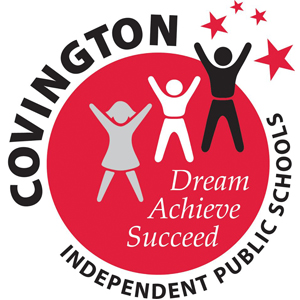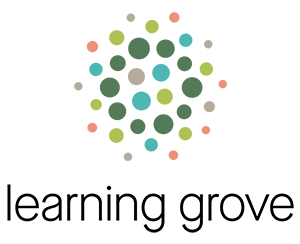Second in series on counseling in Fort Thomas Independent Schools
Over the summer we asked school counselors questions about their role in helping students navigate school and prepare for college, careers and life.
In this part, we hear from the middle school counselors. That middle age, the transition from child to young adult, can be an especially confusing and sometimes painful time. Counseling for this age group has undergone major changes in recent years as so many young teens face challenges and concerns once thought to be issues for older teens and adults.
Counselors in middle schools provide guidance, intervention and support for a population of students who are building their identities, dealing with hormonal shifts and preparing for adulthood. More and more emphasis has been placed on career and college readiness.
Middle school can be a scary time but it’s also an exciting time, as middle schools have become places of collaborative learning, maker spaces and new technologies.

Meet the counselors
Britane Bednar: I could not be more excited to begin my sixth year in school counseling at Highlands Middle School. I have 10 years of experience working in the mental health field, and my role as a counselor in a middle school is by far my favorite. I am extremely passionate about the profession of school counseling, and a strong advocate for the important work our dedicated school counselors across the state are doing to support our students. As president-elect of the Kentucky School Counseling Association, I and the rest of the governing board are constantly striving to find ways to support and enhance school counseling in Kentucky, while ensuring that we are a voice at the table in Frankfort when important education decisions are made.
Lori Maines: It’s hard to believe that I’m entering into my thirty-first year as an educator. My aspirations growing up were always to be a school teacher. I taught sixth grade for 11 years and during that time I would strive to find ways to motivate and encourage my students. I knew studying counseling in pursuance of a Rank I certification would help to better meet the growing needs of students in my classroom. When the opportunity arose to apply as a guidance counselor, I wasn’t hesitant to accept the position. After 20 years in school counseling I know I’ve chosen the right career path.
The middle school counselors chose to answer the questions as a team, so each of these answers was a collaboration between Bednar and Maines.
1. What would you say your primary role is as a counselor? What are some other duties you have?
Our primary role as school counselors is to help support students and remove barriers in learning through academic achievement, social-emotional development, college and career readiness, and encouragement of community involvement.
Other duties include scheduling, student transition, testing, collaboration with teachers, coordinating programs (Homework Huddle, Academic Friday, Quarter Club, Reading Plus), academic recognitions, helping to provide outside referrals and serving on school committees.
2. Are you involved in academic planning for students? How/what input do you provide?
Students are involved in the selection of yearly courses as we help them navigate through the scheduling process, with final input from parents. Additionally, we strive to meet individually with students at least two to three times during the school year to evaluate their academic progress in each of their classes and to set goals for future achievement.
3. How are you involved in the social or individual development of students?
Students participate in a counseling needs assessment at the beginning of the school year to identify areas that students feel they are having concerns (study/organizational skills, academic pressure, conflict resolution, self-esteem, peer relationships, anger management, stress management, anxiety, etc). Once areas are identified skill building and support will be provided through one-on-one, small group and classroom guidance.
4. What would you like parents and students to know about your role?
Students are our top priority, and we will work hard to provide services to help them be successful not only in the classroom but to find activities to get involved and feel part of HMS. There are various extra-curricular activities that student can join such as Academic Team, Art Club, Chess Club, Drama Club, Girl Power, Speech and Drama, Student Council, World Language Club and numerous sport teams. We are available throughout the day and encourage students to seek help whenever needed.

Fort Thomas school counselors: Britane Bednar, Ann Listerman, Erica Thomas, Lori Maines, Trinity Walsh, Laura Schnitzler, Whitney McKay, Shauna Luebbers and Rachel Caswell.
5. While school and personal safety has always been a concern, in light of recent shootings and violence, how has your role changed or intensified?
In regard to school safety issues, our role as a school counselor must always involve a proactive approach. Our district is very supportive in helping to address the needs of our students by adding additional school counselors where needed. We want our students to feel safe when they enter our building and feel comfortable informing an adult they trust when they have issues. This is also addressed through our counselor needs survey.
6. What are some of the more pressing issues you deal with on daily basis such as bullying, cyber safety, grief, depression, drugs (not just use by students but how they might affect students’ family dynamics), fear and other concerns?
Unfortunately, these are all concerns our middle school students have to deal with. The most important thing we can do is to educate our students on how to handle these difficult issues and to support them in their future decision making.
7. Are there issues you feel could use more attention? Is there a need for more resources to address these issues?
Last year our faculty and staff worked hard on improving the culture of our school with the implementation of the Olweus Bully Prevention program. Students participated in structured lessons (e.g. Influencing Others in a Positive Way, Cyber-Bullying, Cafeteria Challenges and Common Ground) throughout the year during the daily Focus period.
Additionally, with the growing concerns of social media, the PTSO sponsored student and parent talks to address this issue with a guest speaker from Operation Parent whose mission is to provide ongoing education, support and hope to those raising teens and pre-teens in today’s culture.
8. How do you keep up-to-date on issues of concern?
We are members of the American School Counselor Association (ASCA) and the Kentucky School Counseling Association (KSCA) which makes available various resources and provides numerous opportunities for professional development through various workshops and yearly conferences. Britane Bednar is currently the president-elect for the KSCA and will take office July 1, 2019.
9. What are ways students and parents can seek help or support from counselors? Are there ways to identify when you might be able to help?
Students can contact a school counselor by messaging through Schoology anytime throughout the day or stopping by the office. Being in the hallways during class exchanges and during lunch makes us not only visible, but approachable for students to seek help. Communication with parents is established through emails, Schoology messaging and newsletters. We encourage parents to not hesitate to reach out and contact us for assistance if needed.
10. What part of your job do you enjoy most?
Our students are great!! We enjoy our time establishing a personal relationship and providing support to meet their needs. It is very satisfying to see a student accomplish a goal they were striving so hard to achieve. We are also fortunate to work and collaborate with a very caring and dedicated faculty and staff.
Special thanks go to Trinity Walsh, college and career counselor at Highlands High School, who helped organize and gather information for this project.
Next: High school counselors



















